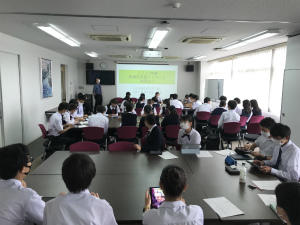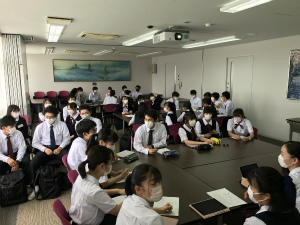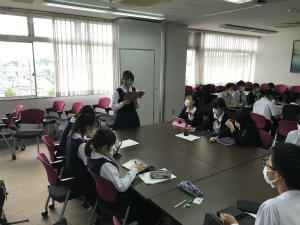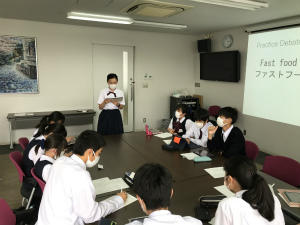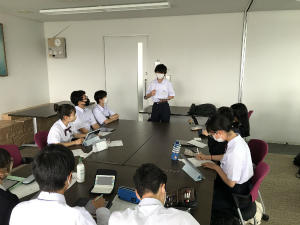グローバル教育〔 地球的規模で考える 〕
PDA即興型英語ディベート
2022年度即興型英語ディベート練習会1
Yesterday, we held the first English debate activities of this year. This year, before the regular debate activities begin, we will hold three practice meetings. The purpose of these is to prepare students new to debate and to help experienced members polish their skills. To do this, after explaining some general points to all members, we divided into two groups.
New members were introduced to two key debate preparation skills: brainstorming and organizing their ideas to make their speeches. For brainstorming they were encouraged to think of many ideas and to consider key points such as having and explanation of the current situation, reasons and examples to support their opinion, an awareness of any problems with their opinion, and so on. For organizing their ideas, they were introduced to the basic AREA pattern of Assertion (主張), Reason (理由), Example (例) and Assertion (主張), and were encouraged to strengthen their assertions by using multiple reasons and examples to deepen their explanation. After some practice activities for these things, they then practiced a full debate using the topic from the model debate they watched in the explanation meeting, which was Fast food should be banned (ファストフードは禁止すべきだ。). Overall, everyone did very well and we are looking forward to their development over the year.
One of the key points of a debate is adapting to your opponent's ideas. As such, the senior debate members had a practical lesson on counter points in a separate room to the new members. Students started with casual discussions trying to create their own reasons and attack the reasons of their opponents. Then as a class students established stake holders, looked at points for and against an idea, and then tried to get into their opponents' heads by creating counterpoints. All of this was followed by some one-on-one debates in which students tried to counter their opponents arguments and create counter counter arguments. In the future, our students should have a stronger grasp of the power of planning in the process of creating counter arguments.


